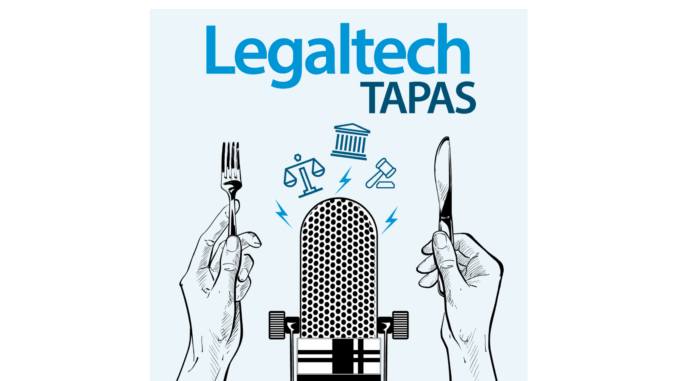
Welcome to the latest LegalTech Tapas podcast on Artificial Lawyer with Andrew Jardine. Today we speak to Tim Pullan, Founder and CEO of ThoughtRiver, the legal AI pioneer.
We explore the product, its growing capabilities – in particular ThoughtRiver’s contract negotiation component, and where it sits in the legal tech market.
If you can’t listen just now, check out a partial transcript below.
(Press play to listen – 22 mins approx.)
–
Episode transcript:
What does ThoughtRiver do?
After a brief departure on the show this episode we are returning to look at AI contract negotiation tools, the original comfort food of the podcast. As part of that, we’ll be digging in to a portion of ThoughtRiver and are delighted to share that meal with Tim Pullan, ThoughtRiver CEO.
For those that have been tuning in to the podcast for a while you’ll know that we’ve covered quite a few AI contract negotiation tools in the past, LawGeex, Scissero and Legalsifter to name a few. All of these are tools that help you to review and mark up third party contracts more quickly, although many of the tools can be used for large contract review projects as well.
ThoughtRiver approaches contract review using AI to boil a contract down to its constituent points of meaning using something they call the Lexible Framework. An easy way to think about the Lexible Framework is essentially as just a list of questions you might want to ask about a contract, for example ‘does it auto-renew?’ or ‘is the indemnity mutual?’.
Once this analysis is concluded ThoughRiver then compares the answers to these questions with what is considered acceptable from your businesses’ playbook, if something is found that appears to deviate from what is acceptable it’s flagged as a risk for further review.
To give you a topical example, if you were reviewing a contract for Force Majeure, ThoughtRiver would not just tell you whether that clause is present or not in the contract, which really wouldn’t be that helpful because we know Force Majeure is in most contracts. Instead it could answer the question ‘Does Force Majeure include or exclude payment obligations?’. Now whether excluding payment obligations is a good thing for you will depend on whether you are customer or a vendor, so then ThoughtRiver compares this point to your playbook to find that out.
At this point you might be thinking this sounds great, but configuring my negotiation playbook in the application is going to be difficult, and you are probably right, fully configuring your playbook for every contract type and eventuality might be hard. Many companies don’t even have their playbook formally written down anyway.
However, ThoughtRiver does have a neat feature that goes some way to help with that. Instead of manually setting all your policies in the application, if you upload your own contract template ThoughtRiver will analyse it and configure negotiation responses for you by mimicking language that’s in that contract. Additionally in the tool there are some sensible pre-set negotiation notes and clause suggestions you can use.
In terms of leveraging all of this functionality, ThoughtRiver has decided to keep the traditionalists happy offering a plugin that shows you all the results while you are working directly in MS Word, alternatively you can also view them in the contract viewer within ThoughtRiver, up to you.
Who should use ThoughtRiver?
I’ve mentioned a few times on the show that tools like ThoughtRiver are best suited to those that negotiate a higher volume of contracts, so I won’t labour that point again.
Instead I’ll say this, primarily ThoughtRiver and other similar tools are best for those that negotiate 3rd party contracts, procurement teams could be a good example. Third party contracts take longer to review when you have to reconcile what they say with what you can accept, which is exactly what ThoughtRiver is good at. If you are negotiating contracts that start from your paper, you still have issues don’t get me wrong, but reconciling what has changed with what you can accept just isn’t as hard to do.
About ThoughtRiver
ThoughtRiver addresses a fundamental problem for lawyers (in-house and private practice): you simply don’t know which part of a contract to focus on without reading it all. In doing so we also address a key problem for CEOs, “how do I increase deal velocity?” Our automated contract review technology speeds up the contracting process by reading the contract, answering key legal questions and then serving up detailed advice and guiding users through remediation within Microsoft Word. The end result is a team of more efficient lawyers who directly increase deal velocity allowing companies to pull revenues forward.
About LegalTech Tapas:
LegalTech Tapas is a regular podcast that serves up bite sized summaries of the latest legal tools, what they do, and why you might use them. Each episode discusses a different legal tool, and includes an interview with a guest from that company so you can hear directly from the horses mouth why you should be using their product. To get the next episode direct to your inbox, sign up @ https://legaltechtapas.substack.com or follow us on Twitter @legaltechtapas.